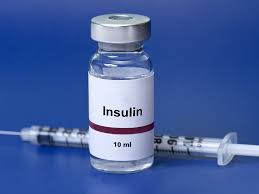
The bolus-basal insulin injection regime for those living with diabetes works like your body should, but may not be a suitable fit for everyone.
If you have insulin dependent diabetes, you’re very familiar with bolus insulin, the type of insulin that is short-acting, typically taken with meals. However, not as many people with diabetes are as familiar with the other kind, basal insulin or, for that matter, the bolus-basal insulin regime. Read on to learn the difference between bolus and basal injections and why a bolus-basal routine might be right for you.
The bolus-basal routine involves taking multiple insulin injections throughout the day. It requires the use of a longer acting form of insulin, basal insulin, to keep blood glucose levels stable through periods of not eating, where cells convert glucose into energy. Basal literally means “background” so this is the type of insulin that remains in the background of the bloodstream and is taken once or twice a day. Bolus insulin is the shorter acting insulin taken at mealtime to prevent rises in blood glucose levels as a result of eating.
The bolus-basal regime is an attempt to emulate how a completely healthy body would deliver insulin. The routine is applicable to people with both Type I and Type II diabetes.
Advantage
The main advantage of a bolus-basal regimen is that it allows you to fairly closely match how your own body would release insulin if it was able. Another big advantage is that it allows for greater flexibility when scheduling meals and for how many carbohydrates you can consume per meal since insulin is adjusted and injected throughout the day. This can be a large perk for adults with busy schedules and less control over meal times and type of food available.
Disadvantages
If there are advantages, there must also be disadvantages. One downside to the regime is that it requires more frequent insulin injections every day. This may be a bigger issue for some more than others, like children who must grow accustomed to the habit.
Of course, not every type of routine is right for everyone. Consult your doctor if you think the bolus-basal injection regime might work for you.
Source : www.diabetespharmacist.com

